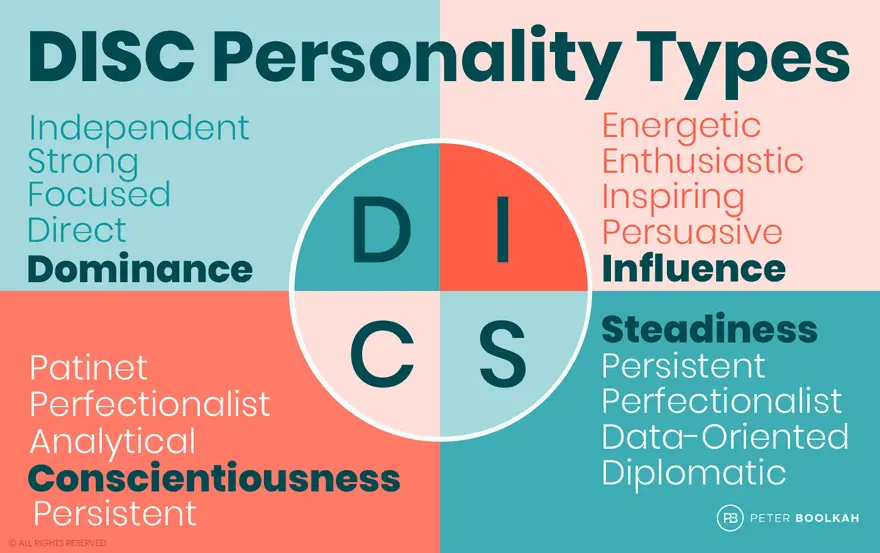What is behaviorism?
- partedu

- Jul 21
- 4 min read

Perhaps you have observed differences among different people by focusing on their behavior. For example, have you ever wondered why some people spend more time on their work than on their family? Why do some managers resist change? Why are some detail-oriented and others are holistic? Why are some people bold and risk-taking and others sensitive and cautious? Why are some good listeners and others not? Or why are some people enthusiastic in their communication and others avoid communicating with others for any reason? Why is it that some people are fast in doing their work and some are slower? Or have you ever wondered why some people are able to make quick and decisive decisions while others hesitate to make decisions despite spending a lot of time on them? Maybe it has happened to you that you sometimes fail to succeed in your teamwork in your business or work groups and you have been looking for the reasons for that. Or sometimes you have seen people who are only able to focus on one specific issue at a time, while there are people who can pursue several different projects and tasks at the same time. According to experts, to answer such questions, one should analyze the concept of behaviorism, and especially disk behaviorism.
The nature of the behavioral pattern
Behavior is all the observable actions and reactions of a person in different situations and circumstances, which are divided into four separate types in this model. We all have different proportions of all these behavioral tendencies, but we always have more of one or two behavioral tendencies, which are called "dominant behavioral styles". Each person creates a unique model for themselves through the process of innate (heredity) and upbringing (environmental education). Your behavioral model is the gateway to communication and interactions with people with you, as well as the principles and way you deal with other people. If a person communicates with you according to your behavioral model, you are inclined to open this communication gateway. But if someone intentionally or unintentionally does not act according to your behavioral model, you tend to close or lock your communication door partially/completely. If you know the behavioral models of others, you can adapt your tone of voice, manner and speed of movement, words and body language to their behavioral model. The result of this action is having an open door to communicate and a relationship with less tension. When people have several common traits and characteristics, they are placed in a behavioral type. Behavioral typing helps organizations in recruiting and hiring the necessary human resources.
Do people's behavioral patterns change over time?
Research shows that although people are attached to their basic or natural style and this behavioral pattern accompanies them throughout their lives, the environment has an impact on the individual's behavioral pattern. When a person works on balancing their behavior, they mature in their characteristics, that is, they learn the ability to understand the behavior of others and adapt to the environment. For example, suppose a person with a yellow behavioral type who is very interested in communication and conversation and is a completely extroverted person is transferred to solitary confinement and does not come into contact with anyone for a month. After this period, this person will have adjusted his behavioral characteristics and will talk less and will be able to be alone and will become an introvert.
The importance of understanding people's behavioral patterns
1- Knowing your personality type helps you to communicate better with others. It is very difficult to communicate with people you do not know. In such situations, you may have misunderstandings in understanding the behavior and speech of others. Sometimes you get very frustrated with people who have a different personality from yours. If you can know the personality type of people, you can communicate better with them.
2. Understanding your personality type can help you resolve or prevent conflicts. When you understand why someone did or said something, you will be less likely to react negatively to them. Knowing the motivation behind someone's behavior allows you to prevent problems before they arise.
3- Knowing your personality type helps you to better understand the differences in others. You know that each person is unique. But on the other hand, sometimes you get frustrated with people who don't fit your communication style. Your friend may have an analytical personality and want to know all the facts, but you expect him to only care about you and your opinion. If you know that he has a CD personality type and you have an SI personality type, you won't expect much from him. By knowing this, you can better understand his personality type, respect it, and then share the facts you want with him.
4- Knowing your personality type helps you be popular and have a positive impact on others. Your popularity and influence increase or decrease in every interaction you have with others. Have you ever met someone who can't stop talking about themselves for a moment? When you see them approaching you, do you feel afraid to interact with them? You do this because their behavior has made them less attractive to you. The opposite is also true. If you are very eager to see someone, it indicates that they are popular with you and you like to spend time with them. By knowing a person's personality type, you can quickly gain popularity with them and have more influence over them by adapting to their behavioral patterns.
Source: Faghihipour, Javad and Jannati, Hamed and Mostafavi, Sanaz and Mohajeran, Arash (1401). Moghadmani Disk Behavior. Introduction to the Disk Model, Tehran, Dar Al-Fonun Publications, First Edition.




Comments